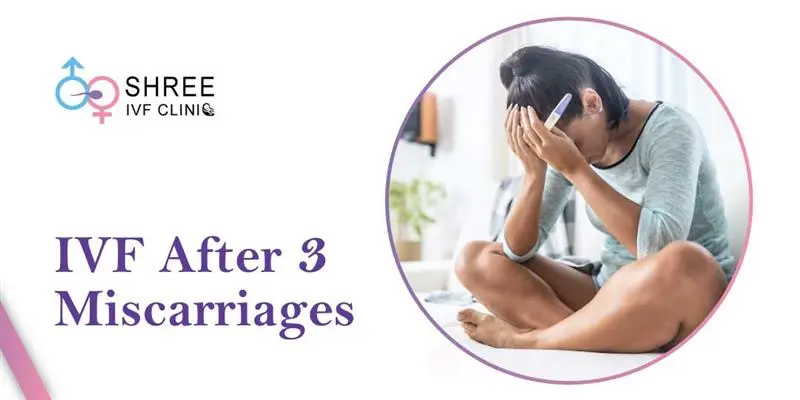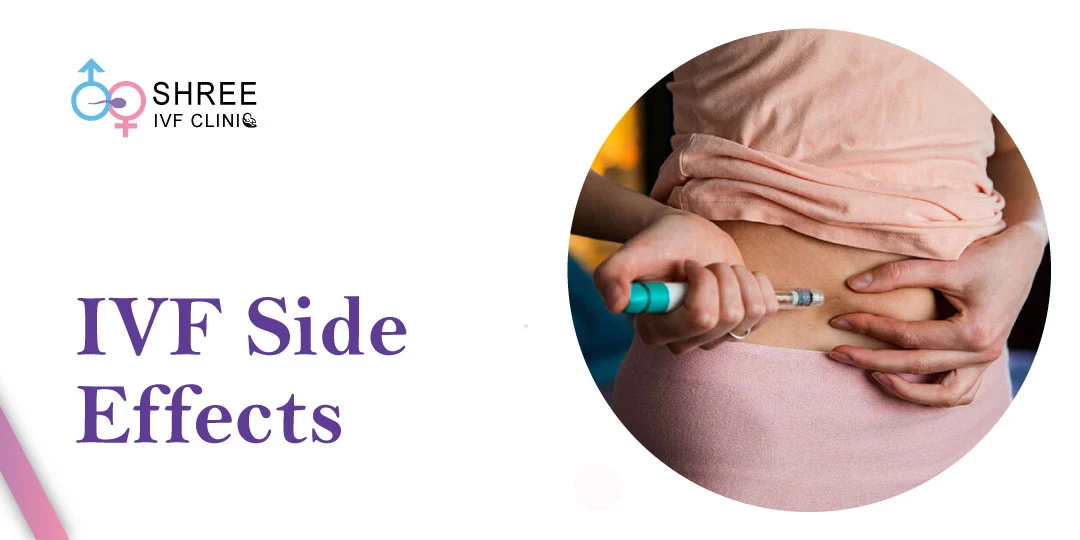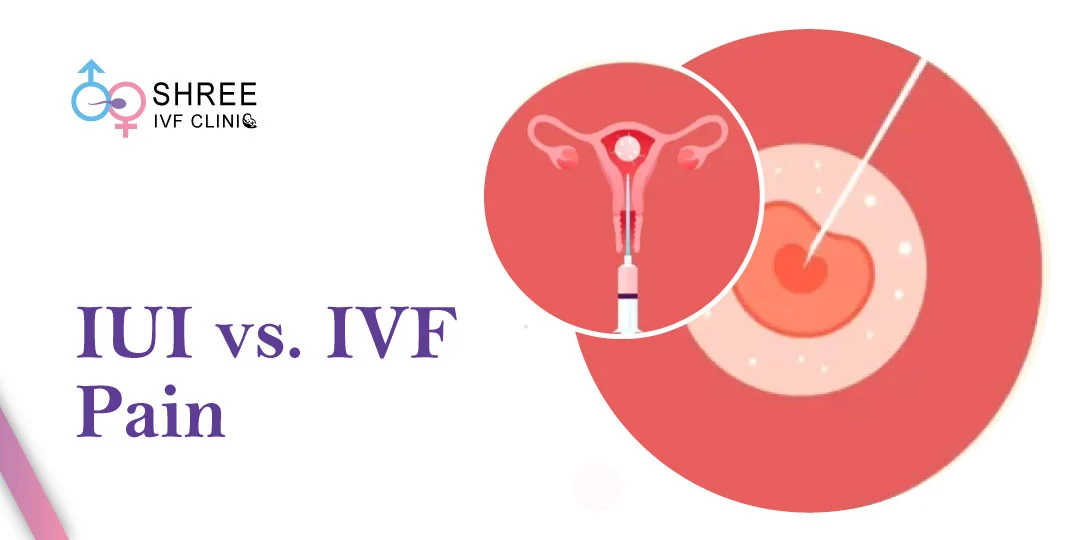Should I Do IVF After 3 Miscarriages?
UPDATED ON 17TH APR. 2025
If you’ve experienced three miscarriages, you might be feeling a mix of grief, frustration, and doubt about the future of starting or growing your family.
The short, honest answer is yes, IVF (in vitro fertilisation) could be an option worth exploring.

AUTHOR
Dr Jay Mehta
Scientific Director & IVF Specialist with 10+ years of experience
GET IN TOUCH ON
IVF, paired with advanced techniques like genetic testing, can significantly increase the chances of achieving a healthy pregnancy.
However, the decision is deeply personal and depends on understanding why the miscarriages occurred, your health, and what feels right for you emotionally and physically.
This article will walk you through key information about recurrent miscarriages and IVF. We’ll cover:
- Common causes of recurrent miscarriages
- How IVF can help and what makes it different?
- The role of genetic testing in IVF
- Emotional aspects of handling recurrent miscarriage and fertility treatment
- Practical steps to take if you’re considering IVF
By the end of this article, you’ll have the knowledge to take the next step with confidence, guided by expert care like that provided by Dr. Jay Mehta at Shree IVF Clinic in Mumbai.
Understanding Recurrent Miscarriages
Recurrent miscarriage refers to the loss of three consecutive pregnancies before 20 weeks of gestation.
Around 1–2% of women experience recurrent pregnancy loss (RPL), which can leave couples emotionally drained and uncertain about future pregnancies.
While one miscarriage is common and often random, recurring miscarriages may indicate underlying medical or genetic conditions requiring attention.
Common Causes of Recurrent Miscarriages
Chronic pregnancy loss often occurs due to one or more factors, including
- Genetic or Chromosomal Problems
Many miscarriages happen due to chromosomal abnormalities in the embryo. This could result from issues in the sperm, egg, or during the cell division process after fertilization.
For example, conditions like aneuploidy (missing or extra chromosomes) can lead to early pregnancy termination.
- Age and Egg Quality
A woman’s age significantly affects the quality of her eggs. After the age of 35, the chances of chromosomal abnormalities in eggs increase, and this could be one of the reasons for recurrent losses.
- Structural Issues with the Uterus
Abnormalities in the uterus, like a septum (a ridge of tissue dividing the uterus), fibroids, or scarring, can make it harder for an embryo to implant or grow.
- Weak Cervix
An incompetent cervix that opens prematurely can lead to miscarriage in the second trimester.
- Immune or Blood Clotting Disorders
Conditions like antiphospholipid syndrome (APS) affect blood flow to the growing embryo, causing pregnancy loss.
- Lifestyle and External Factors
While not always the primary cause, factors such as smoking, excessive alcohol consumption, certain medications, or untreated long-term health conditions (e.g., diabetes, obesity) may contribute.
Sometimes, no specific cause is identified, which can be perplexing. However, unexplained RPL does not mean there is no hope or solution.
How IVF Can Help After Recurrent Miscarriages?
IVF provides a controlled environment for conception. This approach, combined with advanced diagnostic tools, can address many issues that cause miscarriage. Here’s how it works:
- Controlled Fertilisation
During IVF, your egg and sperm (your partner’s or a donor’s) are combined in a lab to create embryos. This avoids some natural risks of fertilisation errors that can happen inside the body.
- Preimplantation Genetic Testing (PGT)
Genetic testing plays a crucial role in uncovering the causes of recurrent pregnancy loss. Through PGT, embryos are screened for chromosomal abnormalities or specific genetic conditions before being transferred to the uterus. Only embryos considered genetically “normal” are selected, drastically reducing the chances of miscarriage.
- Ensuring the Uterus is Optimal
Before embryo transfer, specialists often ensure that the uterus is ready to receive the embryo through imaging, hormone treatments, or minor surgeries if needed.
- Donor Eggs or Sperm
If chromosomal abnormalities are suspected due to age or poor egg/sperm quality, donor options can help. Donor eggs or sperm are sourced from healthy individuals and increase the likelihood of a successful full-term pregnancy.
- Close Monitoring
The entire IVF cycle is closely managed, including stimulation of the ovaries, egg retrieval, fertilisation, embryo transfer, and early pregnancy. This ensures precision and maximises success rates.
For many couples, IVF paired with genetic testing provides a concrete path toward a healthy pregnancy and baby.
The Role of Genetic Testing in IVF After Miscarriages
One critical tool in IVF after recurrent miscarriage is preimplantation genetic testing (PGT). Here’s a simple breakdown of how it works:
- After an embryo reaches a certain stage of development (blastocyst stage), a few cells are removed.
- These cells are tested for chromosomal abnormalities or specific known genetic issues.
- Only the healthy embryos are frozen or used for transfer.
Research shows that transferring genetically normal embryos can greatly reduce miscarriage rates. It’s especially helpful for women over 35 or those with a history of RPL.
Dr. Jay Mehta and his team at Shree IVF Clinic in Mumbai use state-of-the-art technology for genetic testing, which gives couples the best possible chance of a successful pregnancy. Their expertise ensures this process is conducted safely.
Emotional Considerations During Recurrent Miscarriages and Treatment
Pregnancy losses can feel like an emotional rollercoaster. Couples often go through feelings of grief, guilt, isolation, and stress. It’s essential to acknowledge these emotions and seek support when needed.
Coping Mechanisms
- Allow Yourself to Grieve
It’s normal to feel sad after a miscarriage. Give yourself time to process and heal emotionally before moving to the next step.
- Talk About It
Discuss your concerns openly with your partner and loved ones. Counseling can also help you address fears and reduce anxiety.
- Find Trustworthy Support
Fertility specialists who explain the process and provide empathetic care, like Dr. Jay Mehta, can make all the difference. Look for doctors who listen and work with you patiently.
- Join Support Groups
Connecting with couples who’ve walked a similar path can offer great comfort and shared perspectives.
Remember, IVF is a physically and emotionally intensive process, so it’s perfectly okay to take things at your own pace.
What Should You Do Next?
- Consult a Fertility Specialist
The first step is speaking with an expert like Dr. Jay Mehta, who will carefully evaluate your specific case. An initial examination might include hormone tests, ultrasounds, and blood screenings.
- Identify the Cause of the Miscarriages
Understanding the “why” of your miscarriages helps plan the best strategy for a successful pregnancy. Investigations may include genetic tests for both partners, imaging for uterine issues, or immune system evaluations.
- Consider IVF
Based on the diagnosis, your doctor may recommend In vitro fertilization (IVF) with genetic screening. They can also discuss other fertility treatments if IVF isn’t the best fit for you.
- Plan for Emotional and Financial Support
IVF can be both emotionally and financially taxing. Talking to your family and discussing budget-friendly options (like package plans) with the clinic can help. At Shree IVF Clinic, affordable and patient-friendly treatment options are available.
- Stay Positive
Remember, many couples experiencing recurrent losses go on to have healthy babies. Advancements in fertility treatments like IVF offer hope and possibilities.

4,790+
379K+
Final Thoughts
Three miscarriages can weigh heavily on your heart, but with proper diagnosis and advanced fertility options like IVF, there’s reason to be hopeful. IVF, guided by specialists with experience in recurrent pregnancy loss, can increase your chances of a healthy baby.
Seeking care from an empathetic, knowledgeable expert like Dr. Jay Mehta can help provide clarity and direction for your next step. If you’re ready to explore your options, consult the team at Shree IVF Clinic, Mumbai, for personalised advice and support.
Remember, you’re not alone in this. With the right care and tools, brighter days are within reach.
AUTHOR
Dr Jay Mehta
Scientific Director & IVF Specialist with 10+ years of experience
CALL US 24/7 FOR ANY HELP
GET IN TOUCH ON
Share Article on
Recommended Reading
What Are the Side Effects of IVF?
Know the side effects of IVF, from mild pain to hormonal changes, and get expert advice as you start your fertility journey.
After IVF Transfer Pregnancy Symptoms
Learn about early pregnancy signs after embryo transfer, including cramping, spotting or light bleeding, fatigue, breast tenderness, and nausea.
Which is More Painful: IUI or IVF?
Why is IVF generally more painful than IUI? Discover the expert pain management techniques that can help make your experience more comfortable




